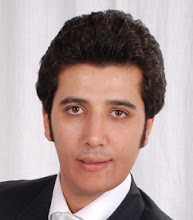 While less than two months have passed since the head of Iran’s judiciary issued orders for the suspension of “public executions”, the Friday prayer leader of religious town of Qom, ayatollah Amini, said at a public prayer on Friday, “Stoning must take place in public.”
While less than two months have passed since the head of Iran’s judiciary issued orders for the suspension of “public executions”, the Friday prayer leader of religious town of Qom, ayatollah Amini, said at a public prayer on Friday, “Stoning must take place in public.”In Iran stoning is used as a method of execution on singles who engage in sex with another person other than their own spouse. This form of punishment is executed in Iran following the testimony of four witnesses in a court of law which must rule on the fairness of the individuals. If a suspect himself confesses to the act four times, the court too may consider the confession to constitute testimony.
Ayatollah Amini also said that some judgments were in line with implementing God’s orders and whose implementation should not be hesitated. “A woman who has committed fornication has to be punished in public,” he said, adding “Just because our enemies may view Islam to be violent should not be a reason not to implement Sharia punishment. Foreigners do not desire Islam and we cannot execute divine laws according to their wishes. If Islamic laws are implemented accurately we will not have the fornication problems we face today.”
Observers have interpreted the words of this cleric in a town that is recognized as the center that trains clerics in their religious beliefs and matters to be a response to the recent release of a woman who had been sentenced to be stoned eleven years ago. This woman, Mokarameh Ebrahimi, was charged with having inappropriate relations and was sentenced to stoning and spent the last eleven years in prison was released last week.
The issue of stoning and its codification into Iranian criminal law is a controversial subject in the country. On November 21st 2006 the spokesperson for the Iranian judiciary publicly announced that “while stoning was part of the Iranian penal code, it would not be implemented any more.” But despite that announcement, stoning was implemented after the date. The best known case involved Jaafar Kiani in Takistan. He was sentenced to stoning along with Mokarameh Ebrahimi with who he had been charged to have engaged in sexual activity. When the court sentenced these two individuals, Mokarameh had left her family and husband 10 years earlier and had lived with Jaafar for a few years with whom she had given birth to a child.
In this regard, Mohammad Javad Larijani, the secretary of Human Rights in the Iranian judiciary had earlier said that the stoning of a man in Takistan was due to a “mistake by the judge” while adding that “we are not ashamed to implement this form of punishment.” In an interview with ISNA student news agency, Larijani has said, “Some think that we are ashamed to implement these judgments because the West curses us for them. This is not the case because the principles of Shiite jurisprudence and law, and those following Mohammad, are not things to be ashamed of.”















